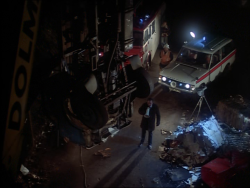by NEIL SINYARD
“A decent provision for the poor is the true test of any civilization.” (Dr Samuel Johnson, 1709-84)
“They can take away our jobs, but they can’t take away our love, can they?” (Sally to her fiancé Larry in Love on the Dole)
In 1932, the year in which Walter Greenwood’s novel, Love on the Dole was accepted for publication by Jonathan Cape, the UK was suffering an economic Depression and unemployment topped three million. There were protests and riots against wage cuts and the deeply unpopular Means Test legislation in places as far apart as Birkenhead and Belfast. In October a demonstration in Hyde Park of 10,000 people from across the country had to be broken up by the police, with 40 people injured and 14 arrests. In December a Health Insurance Act led to the deprivation of pension rights to the unemployed. A Housing survey reported that 98,000 families in the UK of five or more were still living in two rooms or less.
Small wonder, then, that the appearance in 1933 of Greenwood’s novel about life in a Salford slum caused something of a literary sensation. It was hailed not simply as a powerful work of fiction but as an indelible social document of the time. It had behind it the authenticity of personal experience. Born in Salford in Lancashire in 1903, Greenwood had held at least a dozen jobs since leaving school at the age of 12, none of which had earned him a living wage. He had experienced life on the dole on three occasions and had been unemployed for three years at the time of the book’s acceptance. When he adapted the novel for the stage in 1935, in collaboration with Ronald Gow (whose wife, Wendy Hiller played the leading role of Sally Hardcastle in London and New York), it ran at the Garrick theatre in the West End for nearly 400 performances. It also enjoyed a national tour so successful that it was estimated more than a million people in the UK had seen the play in 1935 alone. The following year it had a successful run in America, playing for 129 performances at the Schubert Theatre in New York. Evidence of its impact can be gauged from an extract in The Road to Wigan Pier (1937), when George Orwell described the shame felt by miners about being unemployed and their feelings of impotence and despair. “Everyone who saw Greenwood’s play Love on the Dole,” he wrote, “must remember that dreadful moment when the poor, good working man beats on the table and cries ‘O God, send me some work!’ That cry must have been uttered in tens of thousands, perhaps hundreds of thousands, of English homes, during the last fifteen years.”1
George Orwell, The Road to Wigan Pier (Penguin edition, 1962), p.77. ↩

 It is dead of night, and the sound of a crash is heard. Emerging out of the darkness, 11-year-old Leo (Richard Thomas) chances upon a scene of pure carnage, which, we will come to recognise, could stand as a symbolic representation of his vision of a broken-down grown-up world. A serious traffic accident has occurred, in which a lorry appears to have careered off a flyover and caused significant damage and serious injury below. The police, rescue workers and interested bystanders are already at the scene and getting in each other’s way. Amidst the chaos, no one pays much attention to the young boy moving between them or notice that Leo has spotted the cap of the chief inspector of police (Jack Douglas) on the back seat of his car and, while the inspector is otherwise occupied in trying to bring matters under control, has stolen it. When challenged about his presence on the scene, Leo has said he is on his way home; but, in fact, he pauses at the nearby police station and watches a young offender being roughly bundled out of a patrol car and taken inside. His curiosity being aroused, he stares in at the window as Inspector Ritchie (Derick O’Connor) is showing off the force’s new surveillance equipment. One of its monitors catches a glimpse of Leo.
It is dead of night, and the sound of a crash is heard. Emerging out of the darkness, 11-year-old Leo (Richard Thomas) chances upon a scene of pure carnage, which, we will come to recognise, could stand as a symbolic representation of his vision of a broken-down grown-up world. A serious traffic accident has occurred, in which a lorry appears to have careered off a flyover and caused significant damage and serious injury below. The police, rescue workers and interested bystanders are already at the scene and getting in each other’s way. Amidst the chaos, no one pays much attention to the young boy moving between them or notice that Leo has spotted the cap of the chief inspector of police (Jack Douglas) on the back seat of his car and, while the inspector is otherwise occupied in trying to bring matters under control, has stolen it. When challenged about his presence on the scene, Leo has said he is on his way home; but, in fact, he pauses at the nearby police station and watches a young offender being roughly bundled out of a patrol car and taken inside. His curiosity being aroused, he stares in at the window as Inspector Ritchie (Derick O’Connor) is showing off the force’s new surveillance equipment. One of its monitors catches a glimpse of Leo. Bruce Beresford’s Breaker Morant (1979) is to Australian film what David Lean’s Lawrence of Arabia (1962) is to the British cinema and John Ford’s The Searchers (1956) is to the American. Like those two masterpieces, it has a larger-than-life, arguably tragic hero who is charismatic but controversial; an iconoclast and outsider who tends to follow his own rules and can be a thorn in the side of authority; a character of enormous courage who is also capable of a savagery that can test the boundaries of acceptable conduct; and a character whose progression raises important and uncomfortable issues about racism and about national identity.
Bruce Beresford’s Breaker Morant (1979) is to Australian film what David Lean’s Lawrence of Arabia (1962) is to the British cinema and John Ford’s The Searchers (1956) is to the American. Like those two masterpieces, it has a larger-than-life, arguably tragic hero who is charismatic but controversial; an iconoclast and outsider who tends to follow his own rules and can be a thorn in the side of authority; a character of enormous courage who is also capable of a savagery that can test the boundaries of acceptable conduct; and a character whose progression raises important and uncomfortable issues about racism and about national identity.